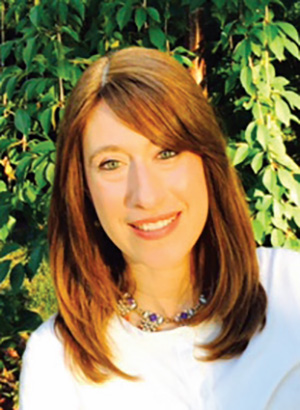

Thursday morning. 11:45 a.m.
Announcement over the hospital loudspeaker:
“Code Blue, third floor, hallway. Code Blue, third floor, hallway.”
(A code blue is a term used for a patient who requires resuscitation or immediate medical attention, most likely from cardiac arrest.)
While exiting the room of a patient on the same floor, I notice the scene midway down the hallway. Several nurses and doctors surround a middle-aged gentleman who was lying on the floor. There are some staff members standing back observing. I cannot walk away. I too stand back to observe. I am told that the patient is George, a 65-year-old Catholic gentleman who was admitted to the hospital a couple of weeks ago for breathing difficulties. Just moments before, he had been taking a walk with his daughter down the hallway when he suddenly collapsed. From the corner of my eyes down the other hallway, I see one of the chaplain-interns who is the “on call” chaplain for “codes” and the patient advocate for this particular floor, both kneeling down next to the daughter, being a supportive presence. They are explaining a bit of what is happening and holding her hand, as she is sitting on a chair, frightened and sobbing.
“Resume compressions,” I hear.
A glimpse of a lifeless body, I see.
I wonder what the staff surrounding me are thinking in this moment, as we are all observing the scene. Lola, Kay, Bob and Diane all look deep in thought…
Inside the mind of Lola, housekeeper: “I was just in to clean George’s room about three hours ago! Such a nice man. He asked me what my name was; not too many people do that. I cleaned the bathroom, took out the garbage and swept the room. He thanked me for doing such a great job. He made me feel so good. George told me he might be discharged over the weekend. He was so happy. I can’t believe that he is now lying on the floor…”
Inside the mind of Kay, nursing student: “This is overwhelming and frightening. I have so much to learn. I am glad I am not the one in charge.”
“Resume compressions,” I hear again.
Sweat and looks of fierce determination on the faces of the attending doctors performing compressions, I see.
One doctor approaches George’s daughter and tells her that she can come closer to watch what is going on, if she so desires. The daughter refuses. She says that she prefers not to see and wants to stay off to the side. The doctor gives her a brief explanation as to what is going on. He tries to be clear and honest while conveying this information. The daughter has calmed down a bit. She puts her head down, closes her eyes, rocks her body back and forth in the chair and appears to be saying silent prayers. The chaplain intern and patient advocate are both being a much-needed presence for George’s daughter without infringing on her personal space.
I look back again at the other staff members near me.
Inside the mind of Bob, social worker: ”Just yesterday, George and I were discussing his upcoming discharge and speaking about various rehab-facility options. He felt so hopeful and was so motivated to succeed in therapy…”
Inside the mind of Diane, nurse: “I’d better go see if any other patients on this floor need my help while my colleagues are helping on this code.”
I, Debby, a chaplain, was thinking and praying: “God. It is clear that you are the one in control. Everything comes from you. You can take away life and restore life in a second. Your salvation can come in the blink of an eye. It is only to you that we can place our trust and faith. Please listen to the prayers of George’s daughter. Please help these doctors and nurses. Please help ease any pain and suffering that George is currently having and give strength to his daughter and the rest of their family. Thank you.”
I begin to recite Psalms with much concentration and fervor.
Time of death: 12:35, I hear.
Exhaustion, despair, frustration, sadness and some relief on the faces of the attending doctors and nurses is what I see.
One doctor approaches the daughter and tells her that her father has just passed away and a scream suddenly pierces my ears. I see a daughter in complete hysterics.
All of us staff — Lola, Bob, Kay, Diane and I all can not move. We are all frozen and know that we need to take a moment to absorb what has happened. There is a silence amongst us. We all look at each other with teary eyes and a strange, but unifying bond. Though each of us has a unique role in the hospital and is of a different culture and religious background, we are all thinking the same exact thought in this moment:
“Life can change in the blink of an eye. Make the most of each day.”
We all begin to walk away slowly and with heavy hearts. Life continues for us, but it is not and cannot be the same.
By Debby Pfeiffer
Debby Pfeiffer is a board-certified chaplain working at Morristown Medical Center through its affiliation with the Jewish Federation of Greater MetroWest, NJ. She resides in Bergenfield with her husband and five children. She can be reached at debby.pfeiffer@gmail.com.












